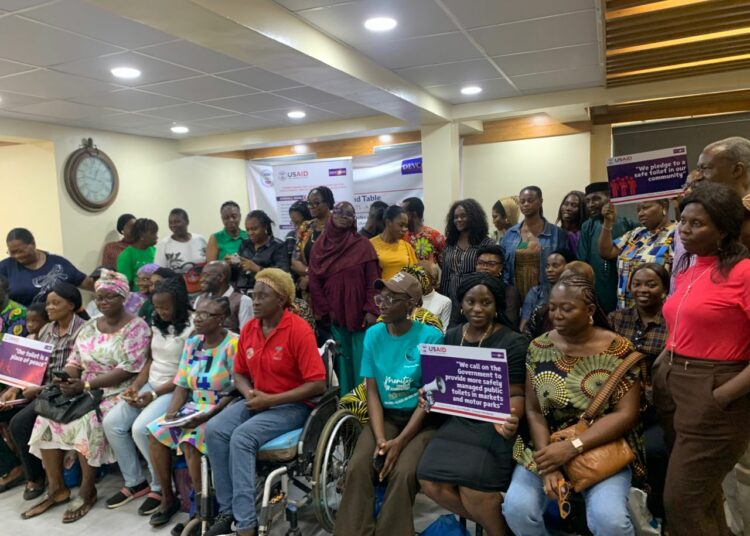The Lagos State government has developed a roadmap to curb the challenges of open defecation in the state.
The roadmap, which was presented by the deputy director, Office of Environmental Services, Lagos state Ministry of the Environment and Water Resources, Ms. Akoro-Bamigbade Sesi Ebunola, at a media roundtable organized by Development Communications (DEVCOMS) Network, to commemorate the 2024 World Toilet Day with the theme “Toilets – A Place for Peace” under its USAID LUWASH Project, in Lagos, aims to reduce the rate of open defecation in the state from three percent to zero percent by 2030.
According to Ebunola, the roadmap includes the construction of new toilets, the reconstruction of existing ones, and a public awareness campaign to educate people about the importance of proper sanitation.
The consequences of open defecation are severe,“ Ebunola said. „It leads to the spread of diseases, the contamination of water sources, and the negative impact on the environment.“
The Lagos state government has already begun implementing the roadmap, with the construction of new toilets and the rehabilitation of existing ones underway. However, Ebunola emphasized that the government cannot do it alone. „We need the support of our partners to help us develop a strategic implementation plan with the roadmap,“ she said.
The government is also seeking support for data collection and monitoring, as well as intervention in bridging the infrastructural gap. Additionally, the government plans to produce popular identifying open defecation platforms in areas such as Ojodu Berger, Oshodi, Agege, and Obalende.
Lagos state will be an efficient state through the Ministry of Environment and Water Resources, which is committed to addressing the critical issue of open defecation and improving the life of citizens through partnership, investment, and community engagement,“ Ebunola said.
The programs director, DEVCOMS, Mr Akin Jimoh, said, „The issue of sanitation goes beyond just toilets; it‘s an issue of compassion, dignity, and humanity. What we consume has a direct impact on our health, and it‘s essential that we prioritize hygiene and sanitation in our daily lives. Imagine being on the streets of Lagos and needing to use the bathroom.
For men, it might be easier to find a corner and relieve themselves. But for women, it‘s a different story altogether. The lack of accessible and clean toilets is a significant challenge that we need to address. As a society, we need to come together to address these issues. We need to work with the media, civil society organizations, community-based organizations, and individuals to create a safer and healthier environment for everyone.“
The expected outcome of the roadmap is to eliminate open defecation across the state, improve health, and create a clean and sustainable environment. The state government is calling on residents, community-based organizations, and civil society groups to join hands in achieving a cleaner, healthier, and more sustainable future for Lagos state.





